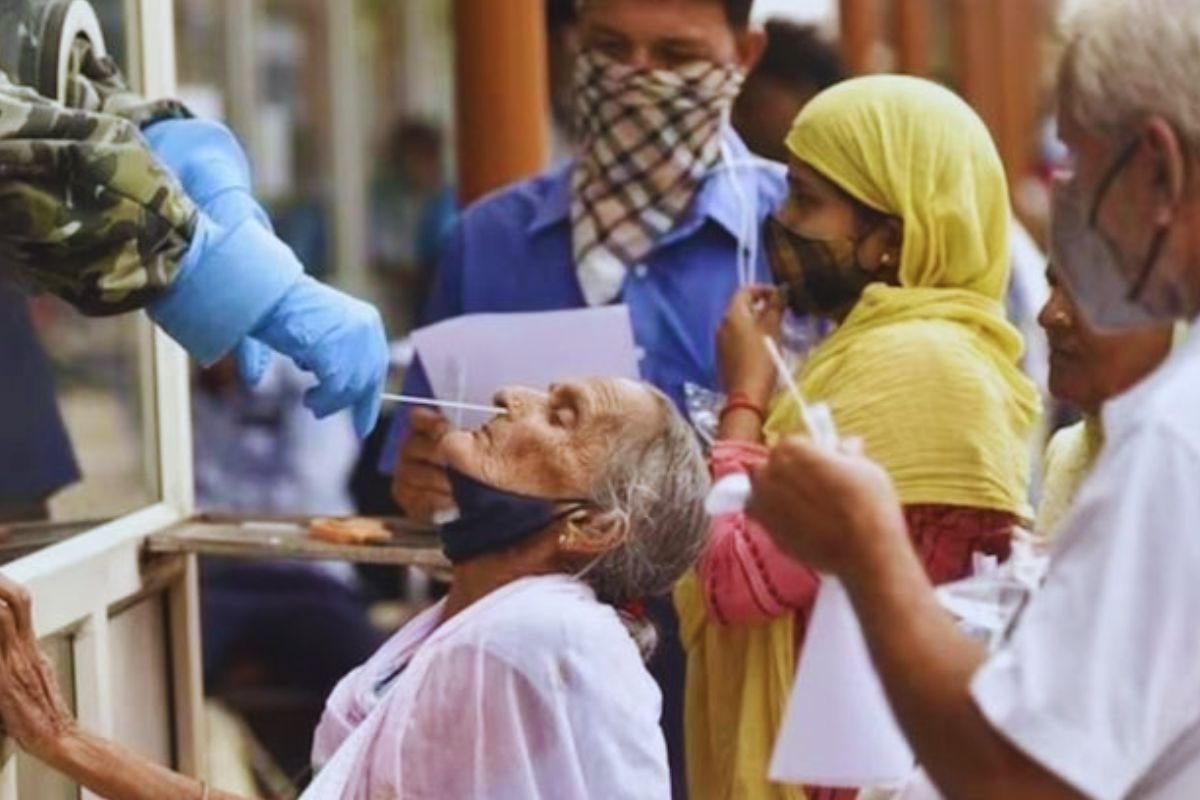


NEW DELHI :Maharashtra has reported its first case of the JN.1 variant of the COVID-19 virus in Sindhudurg, escalating concerns over a potential surge in cases.
The Health Ministry has confirmed 19 cases in Goa, with the JN.1 variant being identified as a sub-variant of the BA.2.86 variant, commonly known as Pirola.
According to health officials, the state has seen a rise in active cases, jumping from 19 on December 9 to 35 on December 19. Authorities attribute this increase to intensified testing, aligning with the Centre’s directive to enhance vigilance in the wake of the emerging variant.
A senior health officer stated, “In the last one week, we have increased testing, which is still below 600 per day. We are now mostly testing symptomatic patients with cough, cold, and fever, reflecting in the figures.”
As a precautionary measure, the Maha government has advised its citizens to wear masks and follow COVID-apporpriate behaviour. Earlier, Karnataka had followed suit.
The state health department confirmed on Tuesday that, as of now, no cases of the JN.1 variant have been detected in Maharashtra.
The JN.1 variant is a progeny of the BA.2.86 variant, known as Pirola, and has been under global surveillance since its initial identification in the United States in September.
The state’s health department reassured the public to not be alarmed, stating, “We have consistently conducted whole genome sequencing. As of now, there has been no detection of the JN.1 variant in the state.”
Emphasising caution, the officer added, “It remains crucial to take preventive measures such as wearing masks when necessary, practicing frequent handwashing, and adhering to other recommended Covid behaviors.”
As part of preventive measures, all districts have been directed to enhance vigilance, implementing measures to bolster surveillance of patients with Influenza-like illness (ILI) and Severe Adverse Respiratory Infection (SARI). Mandatory testing for individuals identified with ILI and SARI symptoms during these surveys has been enforced.
The Centre’s directives have emphasised comprehensive mock drills conducted from December 15 to 17 in secondary and tertiary health institutions across the state. A total of 1,264 institutions participated, including 655 government hospitals, 575 private hospitals, 14 government medical colleges, and 14 private medical colleges.
These drills involved evaluating hospital resources and submitting comprehensive information. Presently, Maharashtra has twice the oxygen capacity compared to the peak of the pandemic.
The state-wide mock drill provided valuable insights into the state’s hospital facilities. Reportedly, the state has 63,675 isolation beds, 33,404 oxygen beds, 9,521 ICU beds, and 6,003 ventilator beds across 1,264 hospitals.
On the other hand, the healthcare workforce comprises 23,701 doctors, with 22,330 specifically trained for COVID.
Dr. Avinash Bhondwe, former president of the Indian Medical Association (IMA), emphasised the importance of imperative precautions in managing the JN.1 variant.
He stated, “The judicious use of masks in densely populated indoor environments is advisable amid the surge. Comprehensive research is indispensable for elucidating transmissibility, immune evasion, and severity, necessitating meticulous surveillance and adaptable responses.”
The first case of the JN.1 COVID variant was discovered in Kerala during a routine testing period.